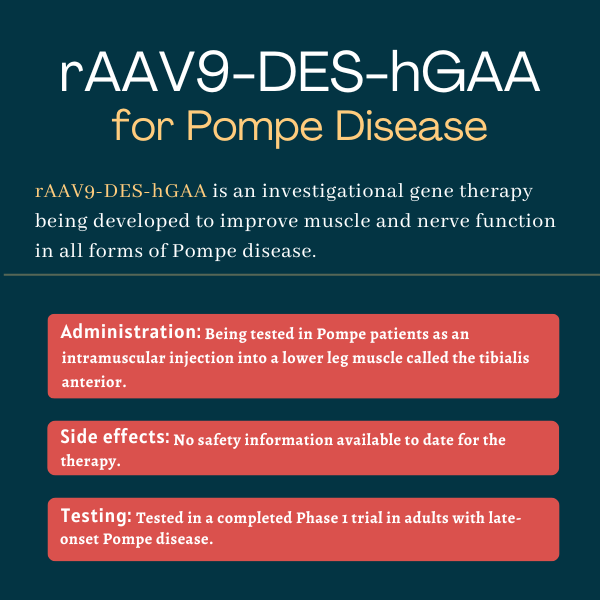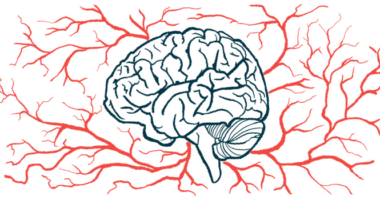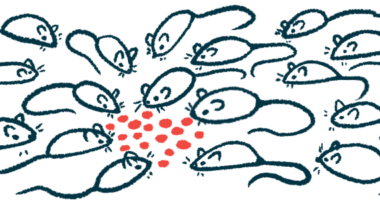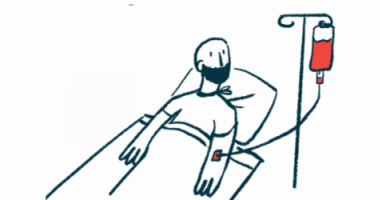FAQs about rAAV1-DES-hGAA
rAAV9-DES-hGAA is an experimental gene therapy that’s not yet approved for Pompe disease. The treatment is designed to deliver a working copy of the GAA gene — whose mutations cause Pompe — to the tibialis anterior, a muscle in the lower leg. This is expected to improve muscle and nerve function, but clinical data for rAAV9-DES-hGAA are not yet available to confirm its benefits.
rAAV9-DES-hGAA is in the early stages of clinical testing. Its safety and efficacy are yet to be established, so it is too early to say if or when the gene therapy might be approved in the U.S.
The Phase 1 clinical trial that tested rAAV9-DES-hGAA in Pompe patients did not include people who were pregnant or breastfeeding, so it is not known whether the gene therapy is safe for use during pregnancy.
Efficacy results for rAAV9-DES-hGAA, including how early it may provide potential clinical benefits to patients, have not yet been reported.
Safety data from the clinical trial testing rAAV1-DES-hGAA in Pompe disease have not been made available yet, so it’s not known if the therapy can result in hair loss or weight gain. Patients who experience any unexpected adverse events after starting a new treatment should always speak with their healthcare providers.

 Fact-checked by
Fact-checked by 







